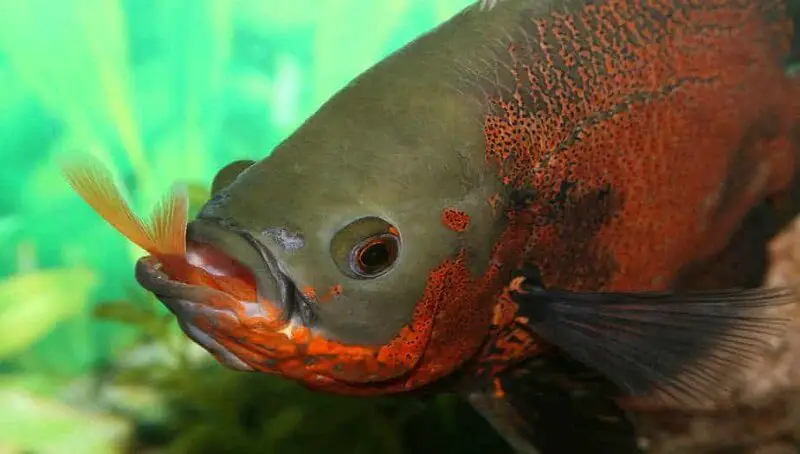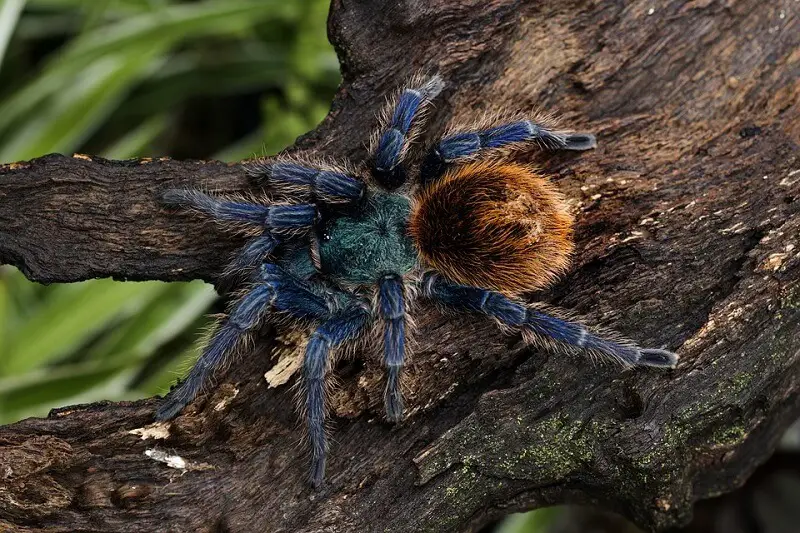You should know that one of the smartest freshwater fish you can get in your aquarium is the Oscar fish. This is why it will be very entertaining to keep one as a pet. Below you will find important information about its lifespan, its feeding, and care requirements.
The Astronotus ocellatus, also known as the Oscar fish, belongs to the cichlid family and is a freshwater fish. Some people also call it the marble cichlid, velvet cichlid, tiger Oscar, walnut cichlid, or peacock cichlid. Although they are found in other parts of the world like the United States, China, or Australia, they are natives of South America. The Oscar fish will usually be found in slow-moving rivers and lakes around the Amazon area.
How Long do Oscar Fish Live?
The life expectancy of an Oscar fish will usually depend on its lifestyle and the type of care it receives. You will considerably increase the lifespan of your Oscar if you give it a healthy, live, and balanced diet. The average Oscar will live about 10 to 12 years, but if you attend to its needs in the best possible way, you might even help it reach its 15th birthday. Another important aspect that will influence the lifestyle and life expectancy of this fish is the size of the tank. A smaller-sized tank will not only stunt their growth, but ultimately the lack of movement will affect their health. This is why, before getting this type of fish, you should get informed on what it means to own it, its housing needs, care, breeding, and diet.
You might also like my articles on Axolotls, crayfish, and jellyfish.
What Will an Oscar Fish Look Like?
 In the wild, the Oscar fish will have a dark color with some orange ringed spots on the dorsal fin and on its caudal peduncle. These spots are known as ocelli. To facilitate its combative and territorial traits. this species of fish can alter its coloration. When reaching adulthood, the Oscar fish will completely change its coloration as opposed to when it was young. Younger specimens will usually be white and have orange wavy bands. They also have spotted heads.
In the wild, the Oscar fish will have a dark color with some orange ringed spots on the dorsal fin and on its caudal peduncle. These spots are known as ocelli. To facilitate its combative and territorial traits. this species of fish can alter its coloration. When reaching adulthood, the Oscar fish will completely change its coloration as opposed to when it was young. Younger specimens will usually be white and have orange wavy bands. They also have spotted heads.
Their scientific name will give you a pretty good understanding of how they look because ocellatus means bearing an eyespot, while Astronotul translates into marked with a star on its back. Their peacock-like tail is what got them their name of peacock cichlids.
You can expect the Oscar fish to grow to about 1.6 kg in weight and 15 inches in length. This is actually the weight and length it can reach in the wild because while in captivity, it won’t grow more than 9 to 12 inches long.
What do Oscar Fish Like to Eat?
The Oscar fish is known as a strict carnivore and will usually eat a few different types of meat. Although they will eat mostly insects while in their natural habitat in South America, they will also love to eat fish that are smaller in size than them. They will use the suction mechanism for catching prey. One fish they like to eat is catfish from either Rineloricaria, Ochmacanthus, or Bunocephalus species. They will usually want to eat live food, so make sure you have the possibility of getting enough live insects and feeder fish if you want to keep one as a pet. The most balanced diet for the Oscar fish, which is both packed with nutrients and healthy is cichlid pellets. This will only have to be supplemented with the occasional shrimp and prawns to keep the fish healthy.
How to Properly Care for Oscars
Even before you get the fish, make sure you get a proper tank that is filled with all the necessary equipment. Keep in mind that the Oscar will grow to an impressive size, so don’t get a tank that would only be good for the young version of the fish. The proper maintenance of the tank and cleaning it regularly is very important, considering that these fish are the messiest of all pet fish. To keep them healthy, you will have to keep them on a high protein diet made from different types of meat. You should keep a feeding schedule and never overfeed the fish because this will cause a lot of waste in the tank and can even be unhealthy for the fish itself. It will be great if you can keep this fish in its own tank due to its aggressiveness.
By now, you should have a pretty good idea of the expected Oscar fish lifespan and the care it will need to reach a higher age. If you have any other questions on this fish or its needs, leave a comment in the form below and I`ll make sure to answer as soon as possible.




